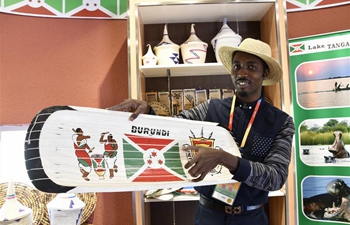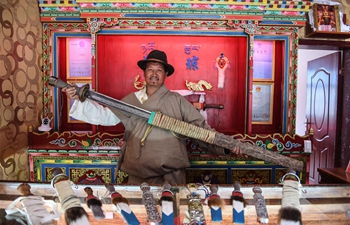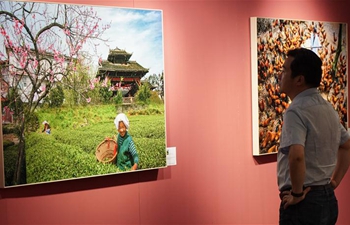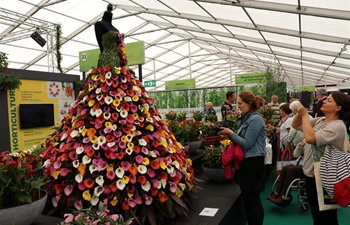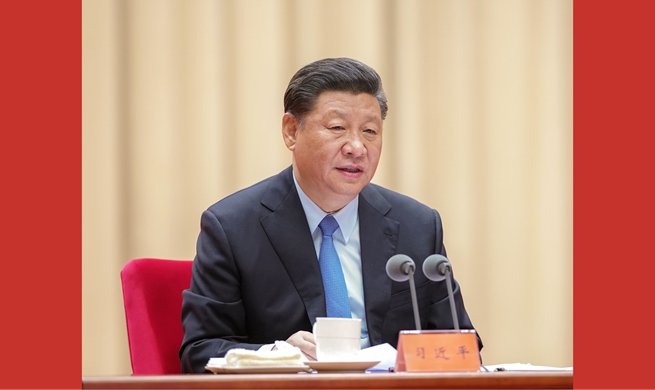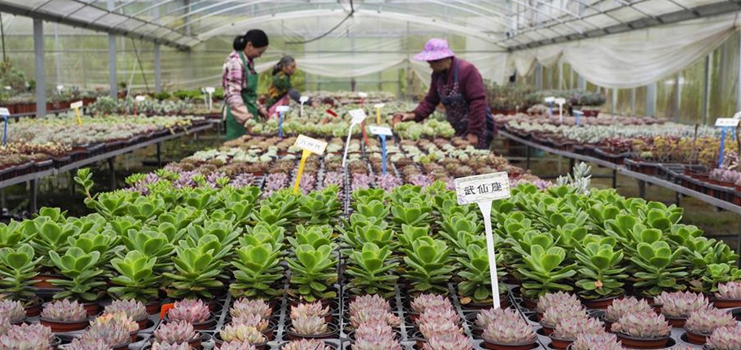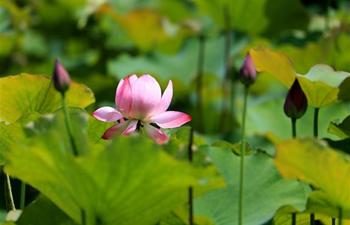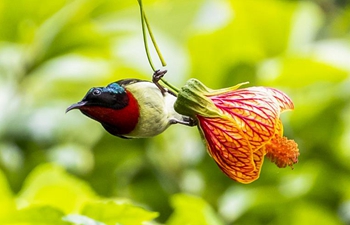SHIJIAZHUANG, June 1 (Xinhua)-- As the spring tea picking season starts, workers on a tea plantation deep in Taihang Mountain in Lincheng County, north China's Hebei Province, are busy picking and drying tea leaves around the clock.
"In the past, people considered planting southern tea in north China as a daydream. However, we made it," said Qu Baomin, 42, a tea-planter who successfully brought southern tea to Taihang Mountain and started mass production.
Tea has been planted for thousands of years in south China. Since the 1950s, China began to explore tea planting in the north of the country, but the latitude and cold weather was always an obstacle.
In 2012, Qu and his wife contracted two hectares of land to plant tea in Tonghua village on Sanfeng Mountain, which is nearly 1,500 meters above sea level, with rivers flowing through it.
The cold resistance of longjing-43 tea introduced by Qu is relatively strong. But for the southern tea, the most difficult days are still winter in north China, especially in Taihang Mountain which can be as low as minus 20 degrees Celsius at the coldest time.
"The key factor for the survival of the tea plant is to keep warm in winter, and we chose to grow the plant in a greenhouse," Qu said, adding that it should neither be too cold nor too hot in the greenhouse. He always opens the window when the sun comes out in case the temperature in the shed gets too high.
Since planting tea in 2012, Qu has spent almost all of his time in the tea garden on the mountains. Finally, his hard work has paid off.
Identified by the Tea Quality and Supervision Testing Center, Ministry of Agriculture in 2014, the shape, color, aroma and taste of Tonghua tea produced by Qu were all high quality.
"This proves that the north can produce good-quality tea," said Wu Xun, a researcher from Tea Research Institute, Chinese Academy of Agricultural Sciences. "The sunshine duration is long and the temperature difference is large in the north. Once we solve the problem of 'surviving' using greenhouses and other facilities, the quality of the tea is possible to surpass that of the south."
Although the tea from Taihang Mountain is not well-known yet, Qu's tea has already earned a reputation for its good quality in the middle to high-end tea market. About 100 grams of tea can be sold for 1,000 to 3,000 yuan (145 dollars to 435 dollars) depending on the grade.
"The investment in tea planting is mainly at an early stage, as long as you survive the first five years, the benefits are considerable," Qu said. "The economic age of tea plants is 40 to 70 years. If they are well planted, the financial returns will be several thousand yuan per mu per year."
Qu's tea planting business has helped almost 100 farmers shake off poverty. It has also spread to other areas of the Taihang Mountains, and Shijiazhuang and Baoding cities.
Gong Qiugen, a 63-year-old farmer from Tonghua village, has been working in Qu's tea garden since he started.
"The people who work here are all from our village. Each month, I can earn 2,000 yuan (290 U.S. dollars) and during the three-month tea picking season, I can earn up to 10,000 yuan (1,447 dollars)," Gong said.
"My next goal is to lead more people to plant tea trees in Taihang Mountain and lift more people out of poverty. So Taihang Mountain can be evergreen and with a tea fragrance spreading in the air." Qu said.





